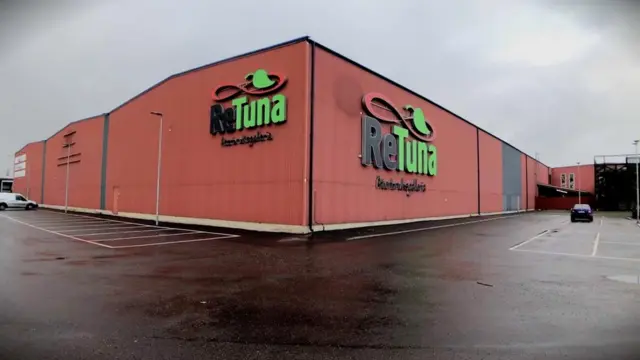Discovering the ReTuna shopping mall in Eskilstuna, Sweden, feels like entering a new vision of retail. Opened in 2015, it is the world’s first mall to sell only secondhand and repurposed items. For many visitors, it transforms sustainable shopping into something stylish, accessible, and even joyful.
Unlike cluttered charity shops or vintage boutiques, ReTuna offers a curated retail experience. Shoppers can browse fashion, sports gear, household items, toys, antiques, and even an Ikea store dedicated to repaired furniture. Moreover, everything sold in the mall is donated by residents through The Return, a drop-off point connected to the city’s recycling centre. Items are then sorted and redistributed to mall retailers, creating a municipality-backed circular system.
This structure works only because of public funding and local government support. Therefore, ReTuna is also a reminder that circular innovation often requires systemic investment, not just consumer goodwill. Yet what truly makes the mall distinctive is its atmosphere. Clean layouts, stylish displays, and thoughtful design make pre-owned products feel new. Customers frequently describe the mall as “accessible” and “beautiful.” In fact, one shop manager noted that visitors sometimes mistake secondhand goods for brand-new.
As a result, the model challenges the stigma around secondhand shopping. Retailers use low-cost stock to create visually appealing stores, which ensures affordability without sacrificing experience. Consequently, the mall has become a space where ethical consumption feels rewarding rather than restrictive.
Meanwhile, demand for “pre-loved” items continues to surge. Industry research shows that secondhand fashion is growing 2.7 times faster than the wider apparel market and could reach US$367 billion by 2029. Furthermore, the global secondhand goods market is projected to hit US$1.04 trillion by 2035, expanding at a compound annual growth rate of 17.2%. Surveys also reveal that 43% of secondhand buyers prefer in-store shopping, compared with 39% who choose online. In this context, ReTuna reflects a shift in consumer behaviour and highlights what mainstream retail could become.
Now celebrating its tenth anniversary, the ReTuna shopping mall has grown from a local experiment into an internationally recognised model of circular consumption. Ultimately, it proves that secondhand retail can be fashionable, convenient, and socially meaningful. With the right infrastructure, design, and support, sustainable shopping can embed itself into daily life—not as a compromise, but as a rewarding choice.

